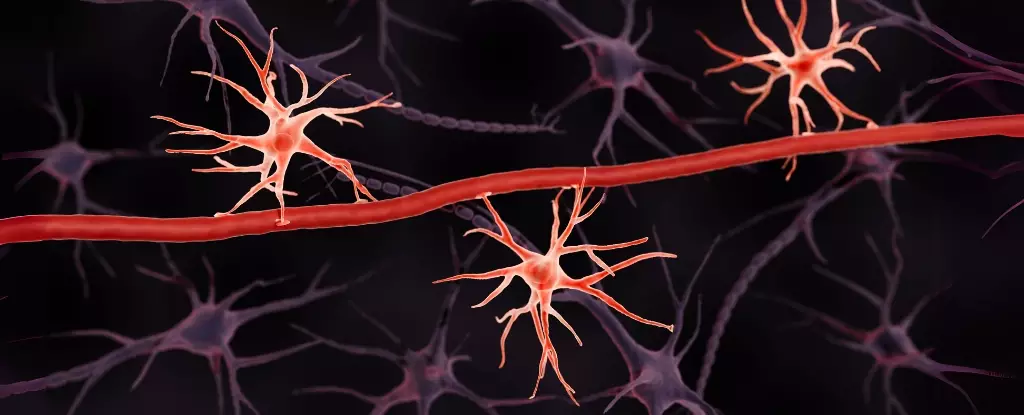In an exciting turn of events within neurobiology, researchers have uncovered a groundbreaking drug that effectively targets inflammation within the brain, showcasing powerful implications for diseases like Alzheimer’s. The revelation comes from pathologist Sanford Markowitz, affiliated with Case Western Reserve University (CWRU), who noted the drug’s efficacy in bolstering the blood-brain barrier (BBB) in mouse models. This finding is noteworthy not only for its immediate therapeutic applications but also for how it raises fundamental questions about established treatment paradigms.
Straying From Tradition: A New Mechanism of Action
What sets this drug apart is its foundational approach. Unlike most contemporary Alzheimer’s treatments that primarily focus on reducing amyloid beta protein clumps—often with marginal success and considerable side effects—this new compound operates through an entirely different physiological route. Central to this shift is the immune protein known as 15-PGDH, which, when inhibited, significantly preserves the integrity of the blood-brain barrier without necessarily altering amyloid levels. This is an eye-opener for the medical community, indicating that a new category of neuroprotective drugs could emerge that do not rely solely on the amyloid hypothesis.
Importance of the Blood-Brain Barrier
The blood-brain barrier plays a crucial role in maintaining brain health by filtering out harmful substances while allowing vital nutrients to pass through. Damage to this barrier can precipitate various neurodegenerative conditions, signaling a wake-up call for researchers to target its preservation actively. Traumatic brain injuries often compromise the BBB, highlighting a potentially exploitable avenue for treatments aimed at preventing cognitive decline. The CWRU team’s findings about 15-PGDH may illuminate even broader implications, suggesting that restoring BBB functionality could become central to various therapeutic strategies against cognitive impairment.
Transformation in Treatment Paradigms
In essence, the implications of these findings extend far beyond the lab. With nearly 10 million new cases of dementia reported globally every year, the race against cognitive degeneration requires not just traditional interventions but a revolution in our approach to treatments. This new compound, known as SW033291, successfully blocked the activity of 15-PGDH in both mice and human models, effectively protecting the BBB and preventing cognitive decline following traumatic brain injury. The researchers, including physiologist Yeojung Koh, emphasize the transformative nature of 15-PGDH as a protective agent, dubbing it a ‘guardian’ of BBB integrity.
The Road Ahead: Cautious Optimism
While this discovery is undoubtedly a cause for optimism, it precedes a challenging road ahead. Transitioning from animal models to human trials will necessitate careful navigation through uncharted territory. Although existing therapies have fallen short, this novel approach mandates thorough validation to ensure its safety and efficacy in humans. The need for innovative strategies cannot be overstated, and as the research community rallies around this promising lead, there lies a palpable hope that perhaps, one day, the shadows of Alzheimer’s may lift, giving way to a world where cognitive decline can be effectively prevented or even reversed. Such an outcome would reshape both personal and societal experiences with age-related neurodegenerative diseases, underscoring the vital importance of continued exploration in this field.

